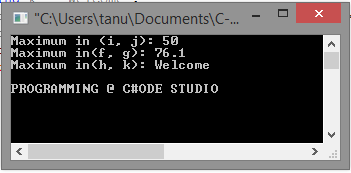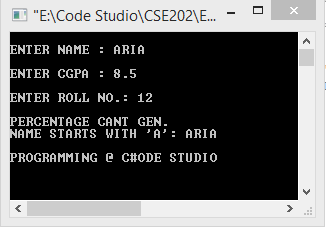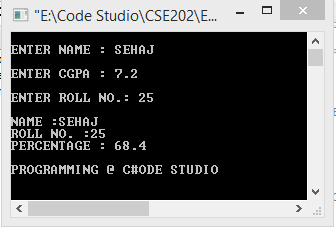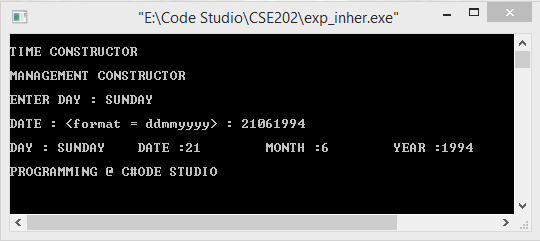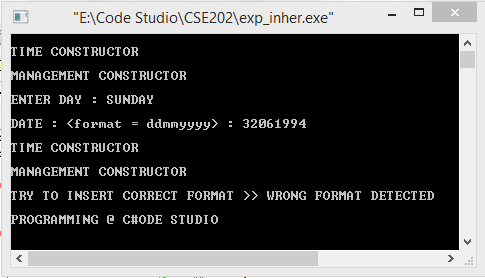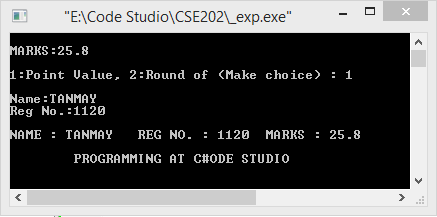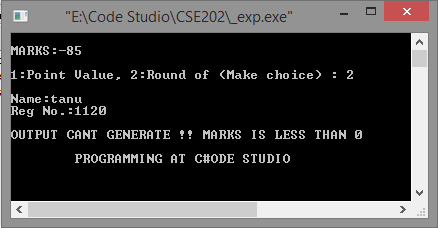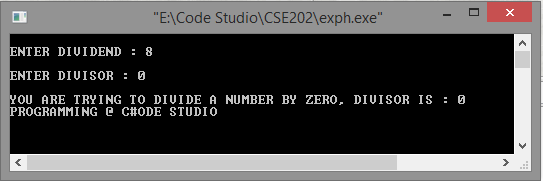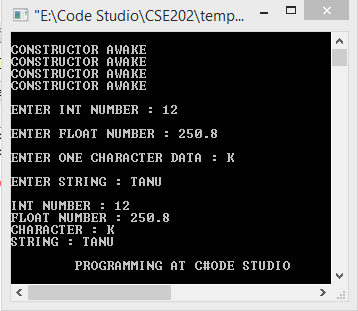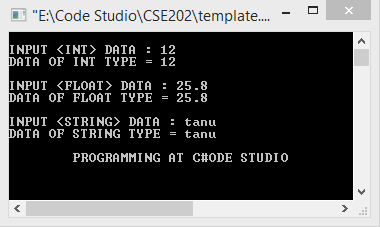A template is a formula for creating a generic class or a function. C++ templates enable you to define a family of functions or classes that can operate on different types of information.
A function template by itself is not a type, or a function, or any other entity. No code is generated from a source file that contains only template definitions. In order for any code to appear, a template must be instantiated: the template arguments must be determined so that the compiler can generate an actual function (or class, from a class template).
Que- Find maximum of different data types using templates in a generic function;
#include "iostream"
#include "string"
#include"conio.h"
using namespace std;
template <typename T>
T maximum (T a, T b)
{
return a < b ? b:a;
}
int main ()
{
int i = 50;
int j = 40;
cout << "Maximum in (i, j): " << maximum(i, j) << endl;
double f = 16.9;
double g = 76.1;
cout << "Maximum in(f, g): " << maximum(f, g) << endl;
string h = "Tanu";
string k = "Welcome";
cout << "Maximum in(h, k): " << maximum(h, k) << endl;
cout<<"\nPROGRAMMING @ C#ODE STUDIO";
getch();
return 0;
}
